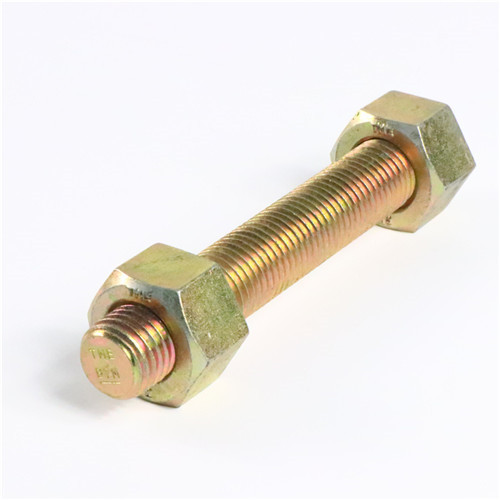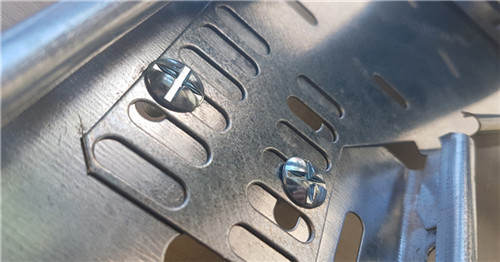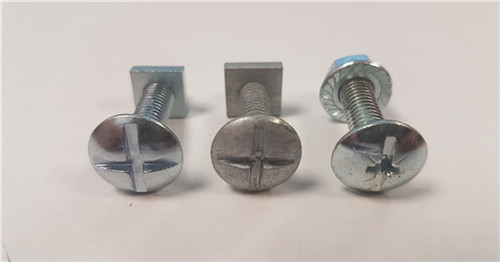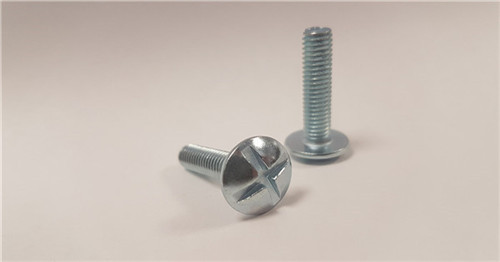

Buying roofing bolts can be a daunting task, but with the right know-how, it doesn't have to be. Before making any purchases, it's important to consider the size and type of bolts you need. The size of bolt depends on the material being used and the application in which they are being used. It's also important to consider the grade of bolt you need, as this determines its strength and durability.
When shopping for roofing bolts, it's important to look for those that are made from high-quality materials that won't corrode or rust over time. Stainless steel is a great option for roofing bolts since it's highly resistant to corrosion and rust. It's also important to make sure the bolts are rated for outdoor use since they will be exposed to the elements on a regular basis.
In terms of types of roofing bolts, there are two main options: hex head and carriage bolts. Hex head bolts have a hexagonal head on one end and a threaded body on the other. This makes them ideal for installation on wood surfaces such as roof trusses or rafters.

Roofing bolts are designed to provide a secure and reliable connection between roofing materials and other structures. They are used in a wide variety of roofing applications, including the attachment of roofing panels, trusses, and insulation. Roofing bolts are made from either stainless steel or galvanized steel, and are available in different sizes to suit specific requirements. The heads of roofing bolts come in various shapes, such as hexagonal, round, or square. Roofing bolts are strong enough to resist wind pressure and help keep buildings stable during extreme weather conditions. They also help to maintain the integrity of the roof itself by providing an effective seal against leaks and water damage. The use of roofing bolts ensures that roofs remain secure and free from structural damage caused by wind or moisture.
Roofing bolts are essential components of any roofing system. They are used to secure roofing material and provide a strong, secure hold for roofs that can withstand all types of weather. Roofing bolts come in a variety of shapes and sizes, from standard hex bolts to more specialized styles like flanged bolts and carriage bolts. The main purpose of roofing bolts is to securely attach different components of the roof together, helping keep the entire structure stable and safe from the elements. This can include attaching rafters, trusses, and other structural components to each other as well as attaching asphalt shingles, metal panels, or other materials to the structure itself. Roofing bolts are typically made from hardened steel or stainless steel and have been designed to withstand extreme weather conditions like snow, hail, wind, and rain. Installing roofing bolts correctly ensures that your roof will be able to stand up to whatever Mother Nature throws its way.
Roofing bolts are an essential part of any roofing project. They are used to secure roofing materials to the underlying structure and provide a strong, secure connection point. Roofing bolts come in a variety of sizes and colors, including galvanized, stainless steel, and copper. They are corrosion resistant and easy to install, making them perfect for any roofing job. With the right tools and a little bit of knowledge, anyone can use roofing bolts to complete their roofing project with confidence. Roofing bolts offer a reliable connection between the roof and the underlying structure, ensuring that your roof is safe and secure.
Typically, roofing bolts are fully threaded which makes them even more suitable for diverse applications as they can join thin or thick materials, dependent on how far the bolt needs to be installed.

Installing roofing bolts is an easy and straightforward task that will help to keep your roof secure. It can be done quickly, efficiently, and with minimal effort.
Installing roofing bolts is a simple, yet important process for ensuring the integrity of roofing structures. To do this properly, you'll need the right tools and materials. Here's how to get started:
1. Gather the necessary supplies. You'll need a drill, a drill bit, roofing bolts, washers and sealant.
2. Mark the area where the bolt will go. Use a pencil or marker to draw a straight line on the roof where you plan to install the bolt.
3. Drill a hole in the marked area. Make sure it's slightly larger than the bolt diameter so that it can fit snugly in place when installed.
4. Place the washer over the bolt and then insert it through the hole you drilled in step 3. Secure it with sealant, making sure to apply enough pressure so that it won't come loose over time.
5. Tighten the bolt with a wrench until it's secure in place. Make sure not to overtighten it so that you don't damage the roofing material or compromise its structural integrity.

The market price for roofing bolts is highly dependent on the size, type, and quantity needed. Generally, the cost of roofing bolts ranges from $0.10 to $1.00 per piece, depending on the size and type of bolt. If you need a large number of bolts, you may be able to get a discounted rate. It's best to shop around and compare prices before making a purchase decision. With the right research, you can find the perfect set of roofing bolts at a price that fits your budget.
Market prices for roofing bolts vary depending on the type and size of the bolt. Smaller bolts will generally cost less than larger bolts, and different types of materials may also affect the price. Steel roofing bolts are the most affordable option, but other materials such as aluminum or copper may be more expensive. In addition, bulk orders will generally get a discounted rate. Be sure to shop around to find the best price for your specific needs.
The market price for roofing bolts can vary depending on the size and material used. The most common types of roofing bolts are galvanized steel, stainless steel, and zinc-plated steel. Galvanized steel roofing bolts tend to be the most economical option and are the most widely used type. Stainless steel roofing bolts offer a higher level of corrosion resistance and are more expensive than galvanized steel. Zinc-plated steel roofing bolts are known for their superior strength and durability, but may be more expensive than other options. When choosing the right type of roofing bolt for your project, it is important to consider the cost, quality, and compatibility with other materials being used.

Factors to consider for the waterproofing membrane application
2022-03-09Excellent screw supplier
2022-03-03What is TPO waterproof membrane
2021-12-14
Tel: + 0086 15076176199 + 0086 311-87880324
No.3 Mingdu International Building,
Economic and Technological Development
Zone, Linyi
Shandong China
Shandong Shenghang TECHNOLOGY CO.,Ltd